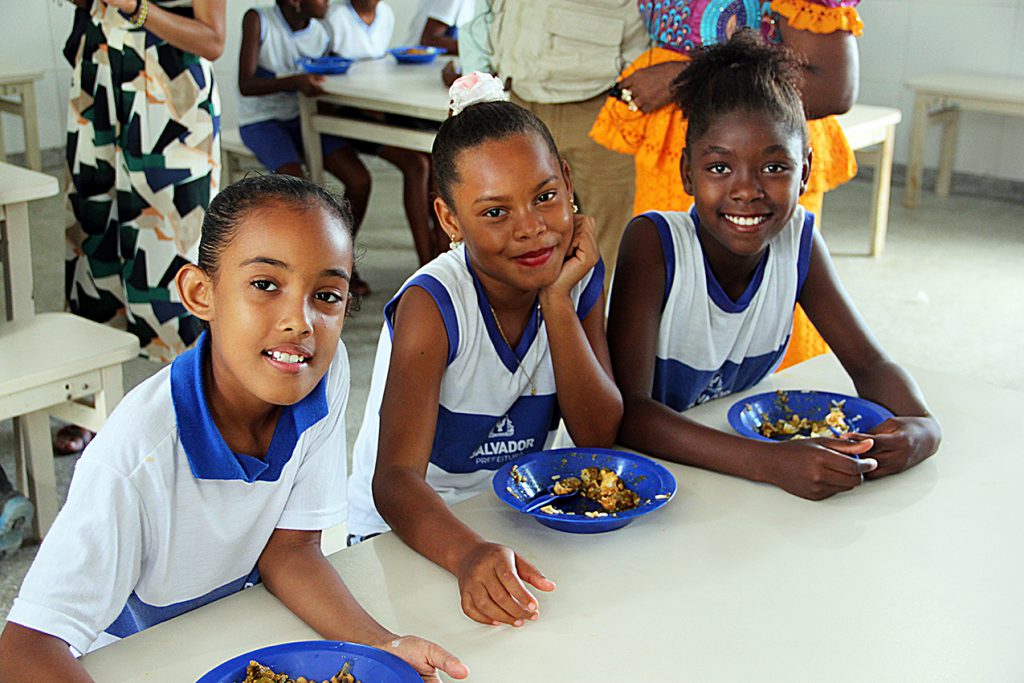
A new version of the Home-grown School Feeding Resource Framework is available. The framework is a guidance tool for stakeholders involved in programme design, implementation and monitoring of Home-Grown School Feeding Programmes. Governments and development partners providing technical and financial assistance, as well as civil society, community based organisations and the private sector can benefit from the publication.
The resource framework presents the existing approaches and tools, and builds on the expertise and experiences with home grown school feeding models. This modality of school feeding is designed to provide children in schools with safe, diverse and nutritious food, sourced locally from smallholder farmers. This combination has multiple impacts on many Sustainable Development Goals.
The publication discusses concepts, issues and home grown school feeding experiences. The goal is to support innovation and learning for governments, practitioners, and academics. The resource framework is also a tool for South-South and trilateral cooperation initiatives, since it enables the replication, adaptation and expansion of successful home-grown school feeding interventions.
The publication is the result of a collaborative effort initiated and coordinated by the World Food Programme. It is authored by a team of experts from the Rome-based Agencies – the Food and Agriculture Organization of the United Nations, the International Fund for Agricultural Development and the World Food Programme. The team includes experts from other partners: the World Food Programme Centre of Excellence against Hunger in Brazil, the Global Child Nutrition Foundation, the Partnership for Child Development, and the New Partnership for Africa’s Development.




